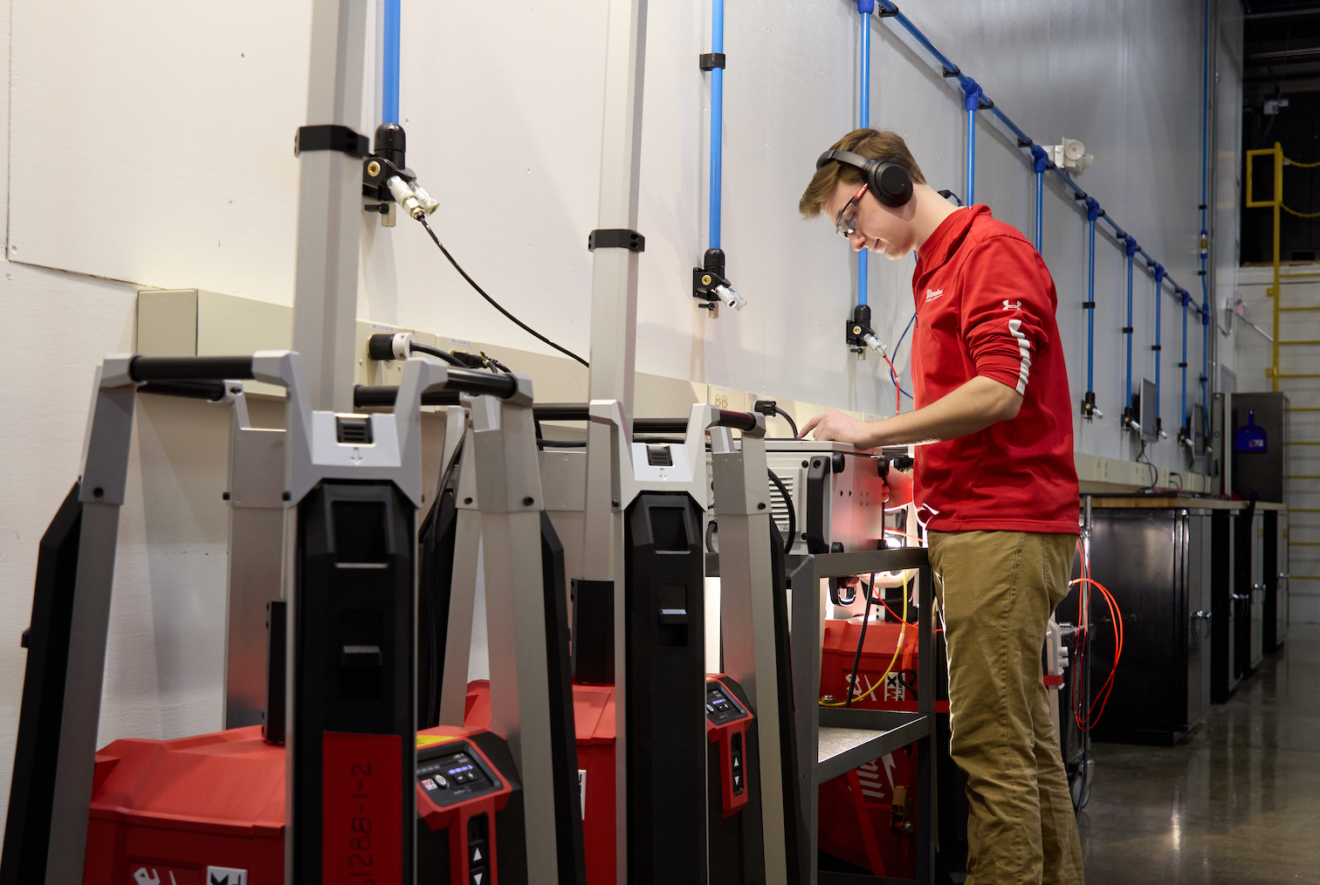This article is sponsored by Milwaukee Tool.
There is a long history of innovative product development behind each Milwaukee Tool solution designed for use on construction jobsites. Adding internet connectivity and data collection to the firm’s professional electric power tools has been the latest electrical tool evolution, but many more new products are in the works at the Wisconsin-based firm.
That’s why Tim Obermann, director of power tool technology at Milwaukee Tool, and his colleagues are eager to recruit visionary electrical engineers. Obermann leads research into promising new technologies that can be incorporated into new, market-ready products. SmartBrief recently spoke with Obermann to better understand what the electrical power tool market has to offer electrical engineers.
What makes the power tool market so dynamic right now?
Just a few decades ago, professionals were using all AC corded products. But today’s system consists of the battery, charger and the tool itself, and this is where it is getting exciting. We can really play off the improvements in battery technology, as well as the improvement in power electronics and drives in the motor side. We continue to change the game by bringing things in like wireless conductivity and smart features.
How did the sector move from tools with nearly no electronics to being dominated with electrical content?
In the 1990s, we saw the introduction of low powered, handheld, cordless solutions. These were later replaced by more powerful lithium power tools, in which Milwaukee Tool really pioneered. As the firm’s electrical and electronics engineering competencies matured, Milwaukee Tool went into brushless motors and electronic motor control in a big way. Subsequently, that enabled the addition of the internet of things with systemic microcontrollers.
From an electrical engineering perspective, how is Milwaukee Tool addressing the gas engine space?
The MX FUEL™ Equipment System is our latest system that we designed from the ground up and it allows us to leverage data management on the jobsite better than we ever have in the past.
We spent a lot of time upfront designing MX FUEL to make sure that we were able to achieve both the power, runtime levels and resilience that the pro user needed. This really meant focusing on getting the best battery cells available in the marketplace and designing the electric motor for these high power systems to be really torque dense and small and light.
What innovative technologies are emerging to serve the construction sector onsite?
I think one of the areas that’s really innovative is bringing together everything about battery motors and electronics. One product that highlights this is our M12™ Digital Torque Wrench. It combines two tools that a professional electrician would use often, which is a m12 ratchet and a torque wrench. Basically, it will tighten down the fasteners in electrical panels more quickly with good precision and also keep digital logs of everything that’s going on.
There’s increasing requirements in the construction industry for logging on the jobsite and proving that you’ve done the job correctly to make sure you don’t have overheating electrical panels, this product really addresses that space.
What might be a typical day for an engineer working on product development at Milwaukee tool?
Milwaukee Tool has state-of-the-art prototyping facilities that allow our engineers to try out new ideas and quickly create prototype products. These are then tested in extensive on-site labs that resemble jobsites, and also out on the jobsite with actual users.
It’s not uncommon for our teams to be covered in sawdust because they were testing carpentry tool prototypes. We drive a lot of experimental learning, but then back that up with robust simulation, and design verification methodologies.
As director of power tool technology, Tim Obermann leads a team that scopes, vets and develops electronics technologies that provide disruptive innovation. He joined Milwaukee Tool in 2015 as a chief engineer in the advanced engineering department.
